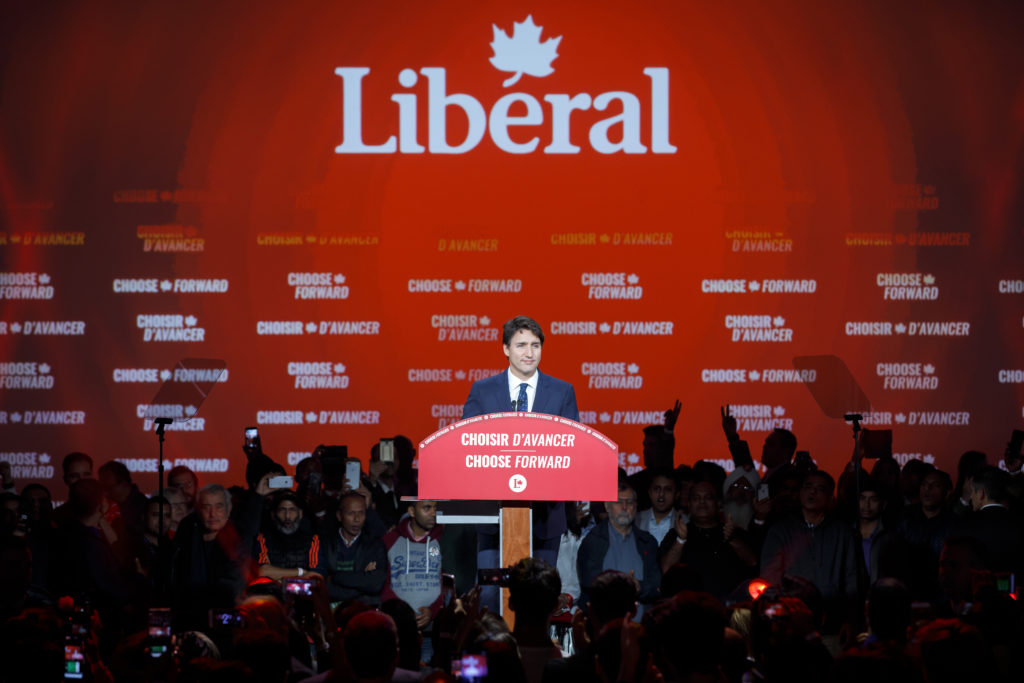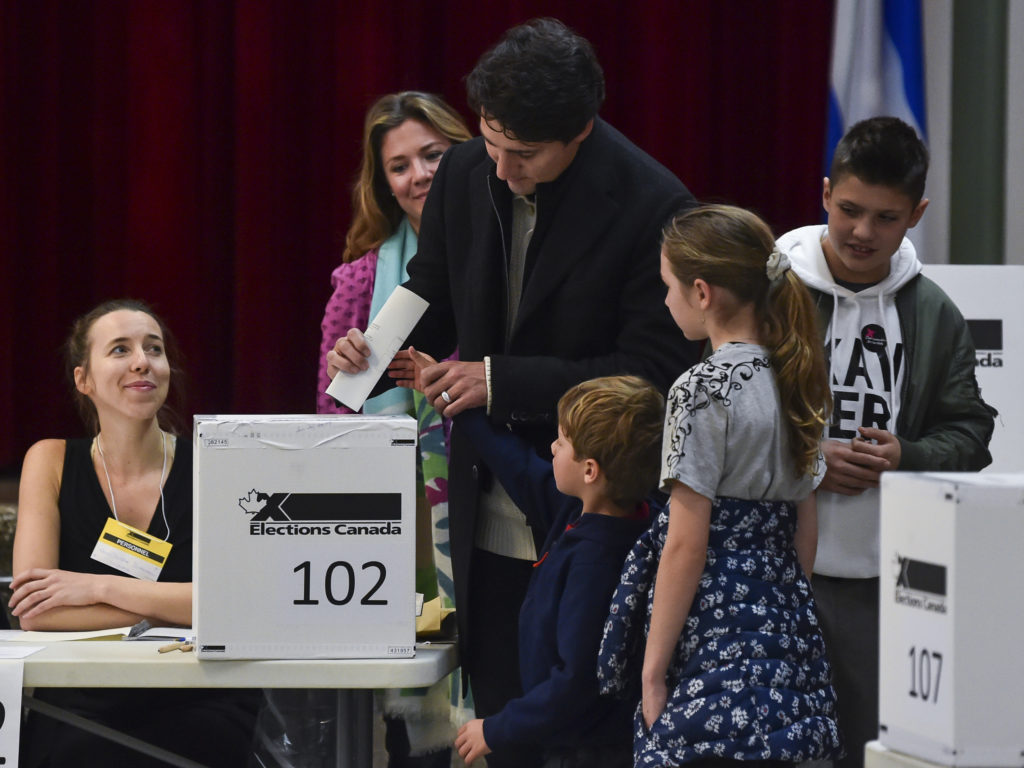What Justin Trudeau’s Win Means for the LGBT community
Justin Trudeau has won a second term as Canada’s prime minister and the country’s LGBT+ community have breathed a “sigh of relief”.
The win for the Liberal Party has kept Trudeau’s opponent Andrew Scheer, who is against marriage equality, out of the top seat at Parliament Hill.
Trudeau, battered by scandal across his campaign, will no longer retain a majority in Canada’s House of Commons but will keep enough seats to allow him to form a government, with support from two left-leaning parties.
His victory in 2015 touted him as a fresh-faced, shirtless jogging, LGBT+ rights championing politician.
Though his approval ratings have slumped since, his renewed term secures a generally positive four years ahead for the queer community.
What will a Liberal Party win mean for LGBT+ Canadians?
Several positive initiatives are now potentially in the pipeline as a result of Trudeau securing a minority government.
In its 2019 platform, the Liberal Party promised to spend $10 million a year over three years to help more LGBT+ organisations hire staff and expand services, according to Global News.
The party also pledged to end the ban on blood donation by men who have sex with men and promised to spend an additional $2 million a year for the pan-Canadian 24-7 mental health crisis hotline.

Additionally, the Liberals vowed to amend the Criminal Code to ban conversion therapy.
Moreover, Trudeau evoked his positive track record to his advantage during his campaigning, contrasting his pro-marriage equality stance with his opponent, Scheer.
The Conservative Party leader voted against several pro-LGBT+ bills in the past, as well as fiercely opposing same-sex marriage when it was first tabled in 2005.
Although, the lawmaker has since claimed to have u-turned on such homophobic views.
Nevertheless, several LGBT+ activists in Canada took to Twitter to share their thoughts on Trudeau’s return to office, with one calling it a “sigh of relief”:
Moreover, four LGBT+ MPs were elected into parliament. Two from the Liberal Party – Seamus O’Regan and and Rob Oliphant – as well as Conservative Eric Duncan and NDP member Randall Garrison.
But some activists took note that this is a decrease from the previous parliament – down by two – and that only one-third of those lawmakers elected are female.
Justin Trudeau’s LGBT+ rights history.
Trudeau has positioned himself as an ally throughout both of his campaigns and during his first premiership.
He became the first sitting prime minister to march in a Pride parade in 2016, and to raise the Pride flag in Parliament Hill.
Moreover, he appointed Randy Boissonnault as his special advisor on LGBT+ issues.

This year, he delivered a formal apology on behalf of the Canadian government to queer citizens who have been wronged by anti-LGBT+ federal legislation in the past.
Moreover, the Liberal government passed a law to permanently expunge criminal records linked to consensual sexual activity with same-sex partners.
The Trudeau administration also decreased the gay blood ban, introduced third gender options on government surveys and forms and even made the national anthem gender-neutral.
Furthermore, the government invested $2.9 million of funding into projects for the Canada’s LGBT+ population.
These projects have included awareness campaigns, advocacy initiatives and other interventions to prevent homophobia, biphobia and transphobia in the Canadian education system.
However, his September campaign was shadowed by scandal, as photographs and videos of a young Trudeau in blackface and brownface surged to the surface, as well as earlier accusations that he bullied his formal attorney general, an Indigenous woman.
These damning revelations took a toll on his voting percentages, but Trudeau’s win has nevertheless secured an overall progressive term ahead for LGBT+ Canadians, activists have argued.